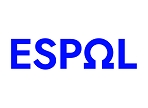FORMATIONS |
Fiche détaillée d'un cours
 | Europe and the EU | ||
2023-2024 | FrESPOL European School of Political and Social Sciences
(
ESPOL
)
| ||
Code Cours : | 2324-ESPOL-EIS-EN-2005 | ||
| Niveau | Année de formation | Période | Langue d'enseignement |
|---|---|---|---|
| S4 | FrAnglais |
| Professeur(s) responsable(s) | Michael HOLMES |
|---|---|
| Intervenant(s) | Pas d'autre intervenant |
- Ce cours apparaît dans les formations suivantes :
- ESPOL - Programme in European Politics - S2 - 3 ECTS
ESPOL - Licence 2 de Relations Internationales - S4 - 3 ECTS
Objectifs du cours
The aim of this course is to make the familiar fascinating. I have no doubt that you are all already very knowledgeable about the European Union. But the way in which the EU is often dealt with in academic analysis of legal texts and treaties. These are undoubtedly important, but they can also be rather dry an unexciting.
This course tries to focus much more on the political and policy dynamics of what is going on with European integration. It deals with key contemporary political problems and crises, such as Brexit, Ukraine, and migration. But in order to do so, it starts with some preparatory discussion of the historical context of European integration and of the political structures on which the EU is built.
The aim is to give you the opportunity to explore integration in a dynamic and contemporary manner. A key theme will be the subtle and shifting relationship between the European Union and its constituent member-states, and the analysis will explore the potentially constructive inter-relationship between nationalism and internationalism in contemporary Europe.
During the course of this programme, you should develop:
- A developed understanding of the historical context of European integration
- A deeper comprehension of the institutional structures and dynamics of the EU
- A stronger awareness of how the challenges affecting Europe can impact on integration
Contenu du cours
1. Contexts (1) – The project of European Union
2. Contexts (2) – Nation states and international cooperation
3. Structures (1) – Administration and organisation
4. Structures (2) – Parliaments and parties
5. Challenges (1) – Economic governance
6. Challenges (2) – Social Europe
7. Challenges (3) – Enlargement and the neighbourhood
8. Challenges (4) – The EU in the wider world
9. Challenges (5) – The EU between crisis and renewal
Modalités d'enseignement
Organisation du cours
Weekly two-hour class, normally scheduled for Wednesday afternoons from 14-16h
Méthodes pédagogiques
Évaluation
Bibliographie
Key texts||
Ian Bache, Politics in the European Union||
Elizabeth Bomberg, The European Union: economics and policies||
Michelle Cini, European Union politics||
Des Dinan et al., The European Union in crisis||
Ali M. El-Agraa, The European Union: power and policy-making||
Adrian Favell & Virginie Guiraudon, Sociology of the European Union||
Daniel Keneally, The European Union: how does it work?||
John McCormick, Understanding the European Union: a concise introduction
Ressources internet
Fondation Robert Schuman : http://www;robert-schuman.org/
Institut Jacques Delors : http://www;institutdelors.eu
European Commission : http://ec.europa.eu
European Parliament : http://www.europarl.eu
Council of Ministers : http://www.consilium.europa.eu
Eurostat (statistics) : http://epp.eurostat.ec.europa.eu
Eurobarometer (opinion polls) : http://ec.europa.eu/public_opinion/index
* Informations non contractuelles et pouvant être soumises à modification


















































































